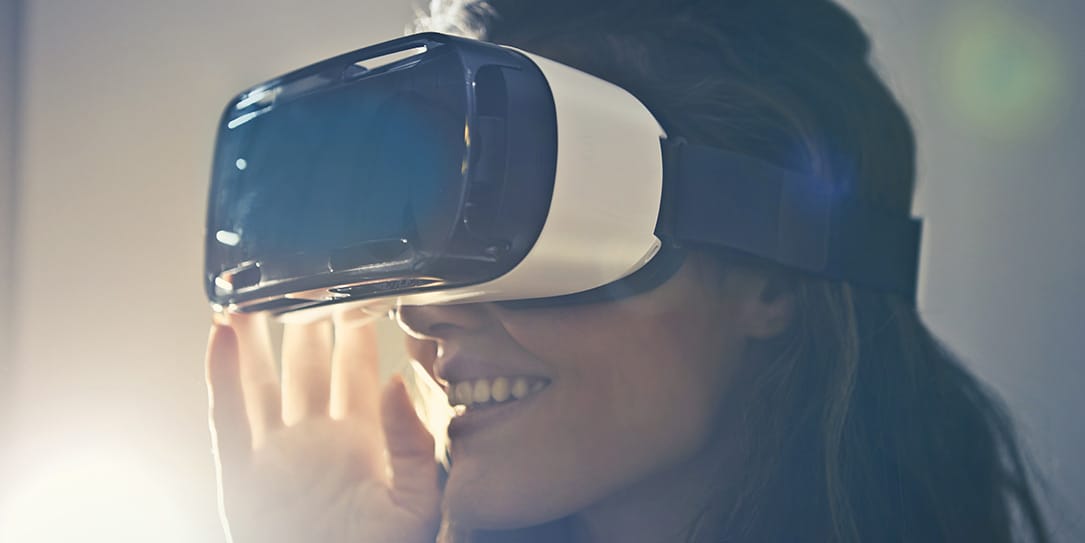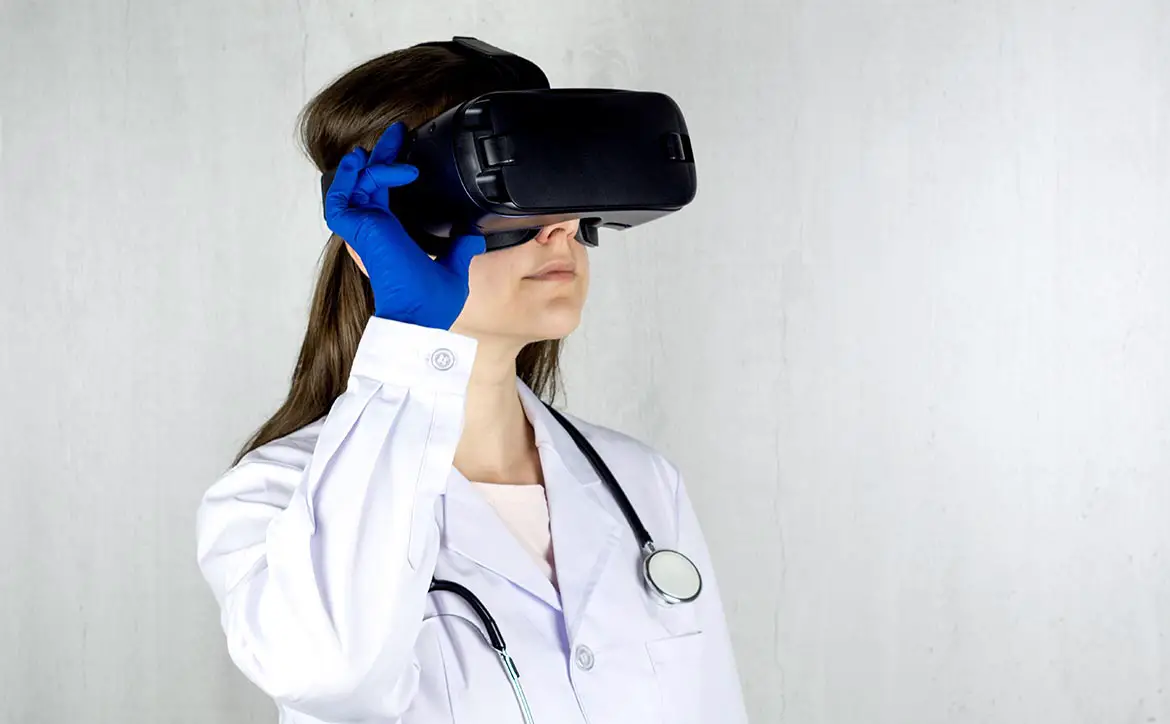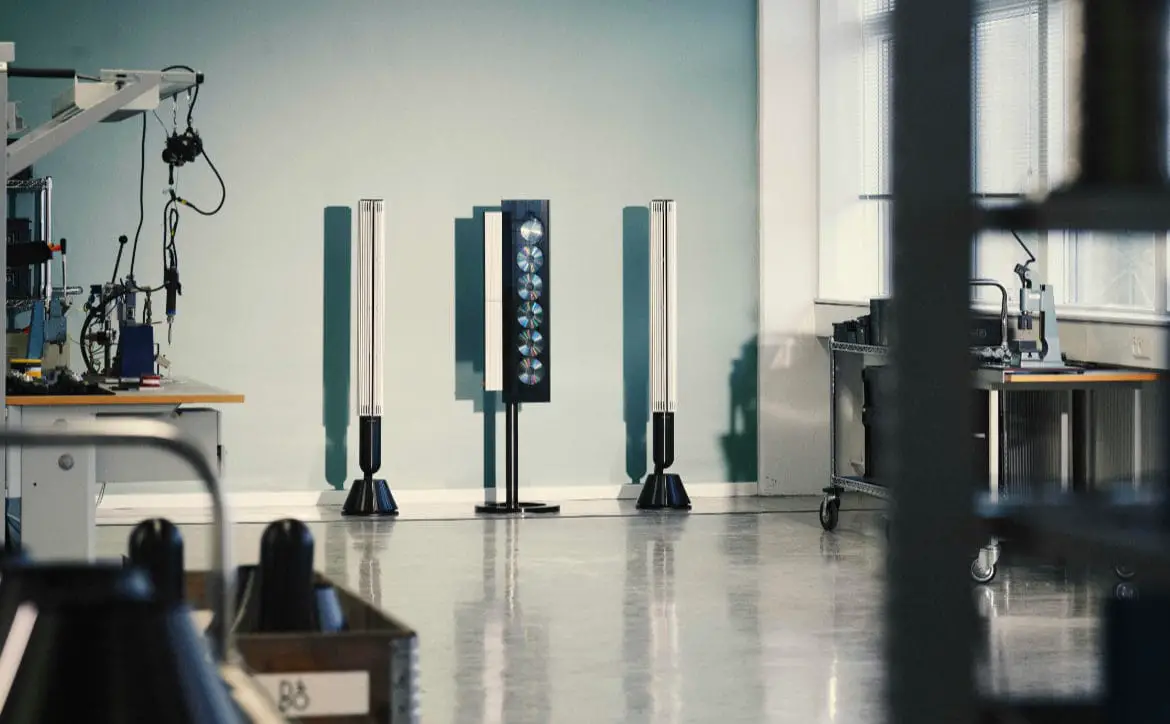Ever since Mark Zuckerberg started talking about it, the metaverse has become a hot topic in the technology sector and everyday life. People in the know are talking about how the metaverse will revolutionize so many areas of the world. But most of the time, the focus is on areas like commerce, entertainment, social media and gaming.
Estimated reading time: 6 minutes
The thing is, the metaverse will actually have a massive impact on many industries—including healthcare. For those who are ready and willing to adopt new technology and new ways of working, we could be seeing a huge transformation in the healthcare industry for the better.
What is the metaverse?
First things first, let’s get an understanding of what the metaverse actually is. There is a lot of confusion around the term, and that’s largely because there isn’t a set definition yet. It’s all too new and there are so many possibilities that need exploring before a true definition of the metaverse can be set.

Essentially, you can look at the metaverse as the next iteration of the internet. This means it’ll be a whole new way of connecting to each other and interacting with information online. The metaverse will make use of artificial intelligence, virtual and augmented reality, as well as faster and more seamless connectivity thanks to 5G and other technology.
Using the internet is going to be far more immersive than simply looking at a screen and browsing web pages. The metaverse could also see a blurring of the lines between what happens in real life and what happens online.
The technological trends driving the creation of the metaverse
The metaverse is made possible by three trends in technology that have come together at around about the same time. These are:
- Telepresence – This is all the technology that allows people to get together virtually, from video conferencing to full-on virtual reality gatherings.
- Digital Twinning – This is virtual modeling or simulations of objects and/or processes from which you can get data that is accurate in the real world.
- Blockchain – This is the technology that gained popularity through cryptocurrencies. It allows online content to form links in a secure chain rather than having it hosted in one centralized space.
Applications of the metaverse in healthcare
The impact of this changing technology on the healthcare industry around the world is going to be significant. We’re already seeing massive changes that have occurred due to technology under lockdown situations during the pandemic. Many doctors started using video calls to help diagnose patients when they were unable to come into the hospital or medical center.
This was just the start.

With the metaverse, we’ll likely see changes like:
- Creating Virtual Models For Training And Practice Purposes
Digital twinning technology will have an almost immeasurable impact on the healthcare industry. Doctors will be able to create accurate models of patients and all of their symptoms. These models are ideal for use with doctors and nurses in training, allowing them to have a very hands-on experience without putting any patients at risk.
Doctors can also use these models to plan and even do practice runs for complicated surgeries or use them to visualize what’s going on inside a patient while undergoing a procedure. This is particularly important for keyhole surgeries that are too small for the human eye to see clearly.
- Predicting Treatment And Recovery Outcomes
Modeling technology can also be utilized outside of surgery scenarios. It can help to predict how a patient will react to and recover from certain treatment plans. Often, surgery or a risky treatment plan can cause concern for patients and doctors because the odds of recovery aren’t easy to calculate. With an accurate model of the patient and their exact stats, the calculations on odds of recovery become far more accurate.
- Using VR To Consult On Cases Globally
People are no longer restricted to seeing the doctors and specialists in just their area. With VR equipment, you can have consultations with specialists regardless of their location and it’ll feel like they’re in the room with you. These specialists will be able to see you properly and give you a full examination. They can also prescribe medication that you can order online. This is especially convenient for sufferers of ailments like migraines who would struggle to drive to a consult or to fetch medication when they’re suffering an attack. Overall, the metaverse will create a cheaper, more convenient and efficient way of diagnosing and creating treatment plans.
- Decentralization Of Storage Of Health Records
At first glance, you can be forgiven for thinking that there is no way for blockchain technology to help the healthcare industry or any industry aside from cryptocurrencies that is. However, blockchain is more about data storage than being for a certain industry. In healthcare, blockchain technology can efficiently store patient data in a more secure manner, and in a way that makes it easier for the right people to access it. Blockchain is already in use in many medical facilities, and it will easily make the leap into the metaverse.
- An End To The Way Healthcare Is Siloed And Specialized
By necessity, healthcare professionals have had to specialize in specific areas of practice. This is why we have dermatologists, neurologists, oncologists, and so on. They all work in their specific silo and focus on what they’re trained in. However, with the better dissemination of information and patient medical records, as well as the addition of faster and better communication technology, it’s possible for specialists to collaborate fully.
The impact of this is that patients can enjoy a more holistic attitude to diagnoses, treatment plans, and consultations. This should lead to doctors being able to find underlying causes of illness or poor conditions a lot quicker. They’ll also be able to monitor patients with greater ease and without always having to bring the patient in for tests.
The future of healthcare
Looking at these applications, it’s clear that the metaverse is going to benefit numerous different sectors like healthcare in varying ways. Technology and healthcare have long worked hand in hand to get the best results, and this can now go one step further in the virtual world.
What do you think about the metaverse and how it can potentially transform and improve healthcare? Let us know on social media by using the buttons below.










